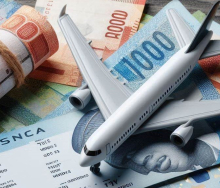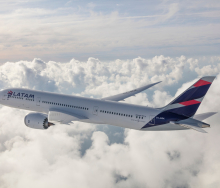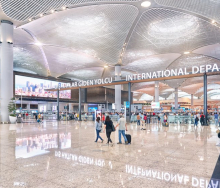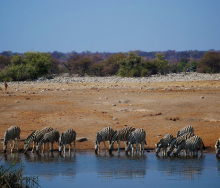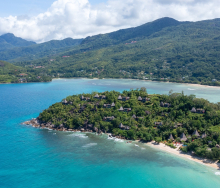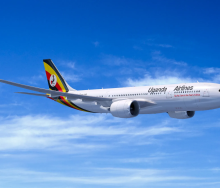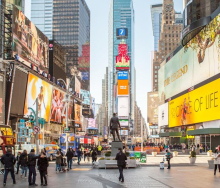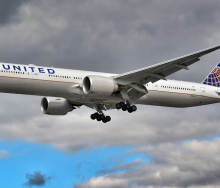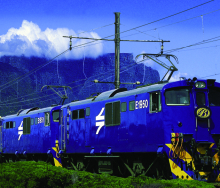Following the most recent positive tourism statistics for December, a hospitality veteran is hopeful that this could signal a return to business travel.
“We’re optimistic that this year is set to see the real return of in-person corporate conferences, strategy sessions and team-building events,” said Anton Gillis, CEO of Kruger Gate Hotel. “However, we’re aware that where the world was once happy to meet in stuffy boardrooms or conference centres, many are now looking for events and locations that are less conventional. People want events that inspire, in locations that keep them motivated and productive.”
He noted that the culture and productivity of strategy sessions, meetings, events and conferences is set from the minute guests and attendees arrive at the venue. “It is, therefore, important to ensure that the venue is one that inspires and that everything meeting organisers have planned for their session makes for a productive and informative event.”
He explains why organisers should consider hosting their next executive strategy conference at a nature-based destination.
The impact of nature on the creativity of the professional
“If you want the best from your team during these strategy sessions and events, then you need to ensure that the environment is conducive to creative thinking”, said Gillis. “So, give careful consideration to where you choose to host these events.”
Studies suggest that it is beneficial to provide professionals with access to natural environments of different kinds in order to support the creative processes.
Gillis explained that there were two types of attention, according to the Attention Restoration Theory (ART) by Steven Kaplan (1995). One refers to the direct attention system, which is used in unnatural urban environments such as an office environment.
“In these environments, our brains receive 11 million bits of information per second, however, only 15-20 bits of information are cognitively adapted. The rest we have to sort out, and this demands energy, which will become mentally tiring (Kaplan, 1995).”
According to Gillis, the other type is spontaneous attention, or soft fascination, which is the ability to experience things unnoticed, thus stimulating the brain without being mentally tiring. This type of attention is used and stimulated in nature (Kaplan et al., 1998).
“The data from our bookings echoes the findings of this study,” Gillis shares. “We’ve witnessed a significant increase in bookings for corporate meetings, conferences and incentive trips and continue to see interest from businesses across South Africa as they look to get their teams out of the corporate space and into an environment that inspires.”
Giilis said Kruger Gate Hotel offers all the classical amenities and high-tech equipment that professional conference organisers expect from a conference venue, with the added attraction of being at the Kruger National Park.
“The location could prove to be both a creative stimulant as well as a pleasant distraction from work when needed. The versatility of over 200 square metres of meeting space at the Kruger Gate Hotel extends from hosting small, executive board meetings, to large schoolroom set-ups for 200 delegates and banqueting for 150.
“Whilst we’ve always provided facilities to serve the needs of our corporate clients, we admittedly did not anticipate these numbers, which has led to us not only expanding but tailoring our conferencing offerings to meet the diverse and ever-increasing needs of this key client segment,” Gillis added.
The Presidential Suite is an additional special add-on which organisers might wish to include as part of incentivised accommodation.
Gillis commented that if delegates couldn’t travel to a destination such as the Kruger National Park, organisers should consider other outdoor venues or venues where delegates have stunning views, rather than staring at four walls for the entire duration of the conference.
Productivity directly impacted
Insights from Gartner’s 9 Future of Work Trends for 2023 report reveal that the demands of today’s working environment have left managers feeling mentally fatigued. It is no surprise that the pandemic has changed the nature of the working world, with the remote and hybrid working models having become the new normal and, in fact, form part of the criteria for employees when selecting their next employer.
“Management therefore experiences the dual pressures of having to provide remote work options and tending to employees’ evolving needs and expectations. In fact, 60% of hybrid employees say their direct manager is their most direct connection to company culture,” said Gillis.
To respond to this, it is imperative that organisations prioritise support for those in management positions. This can be done by investing in strategic sessions set in environments conducive to these employees’ mental well-being and creativity, as this will allow them to conceptualise new and innovative ways of advancing employee productivity and, as a result, organisational profitability.
“One such way is to choose a holistic conferencing destination that extends beyond a stiff boardroom,” Gillis pointed out.
“Choosing to host your next executive conference at a destination such as ours, will not disappoint. Our corporate clients have frequently admitted that their executive team were not only more productive but by having access to a holistic nature-based hotel, they were more innovative in their approaches to strategy development. This is because an equally important contributor to productivity is rest and rejuvenation,” Gillis shared.
“As an industry we are excited to see the MICE (Meetings, Incentives, Conferences and Exhibitions) market returning. We already saw an increase in interest from leisure travellers in 2022 and we expect that 2023 is the real return of the business traveller,” he said.


